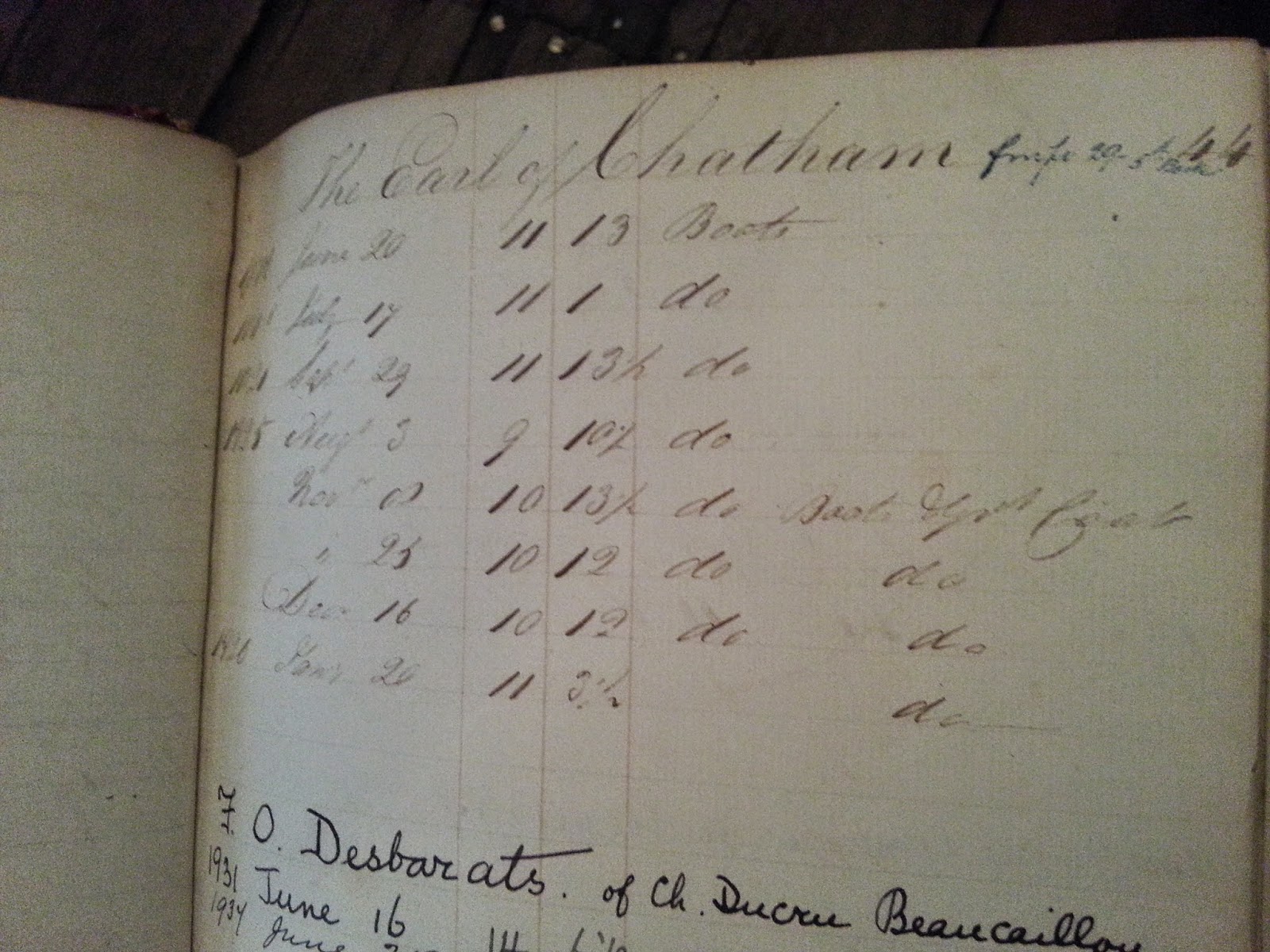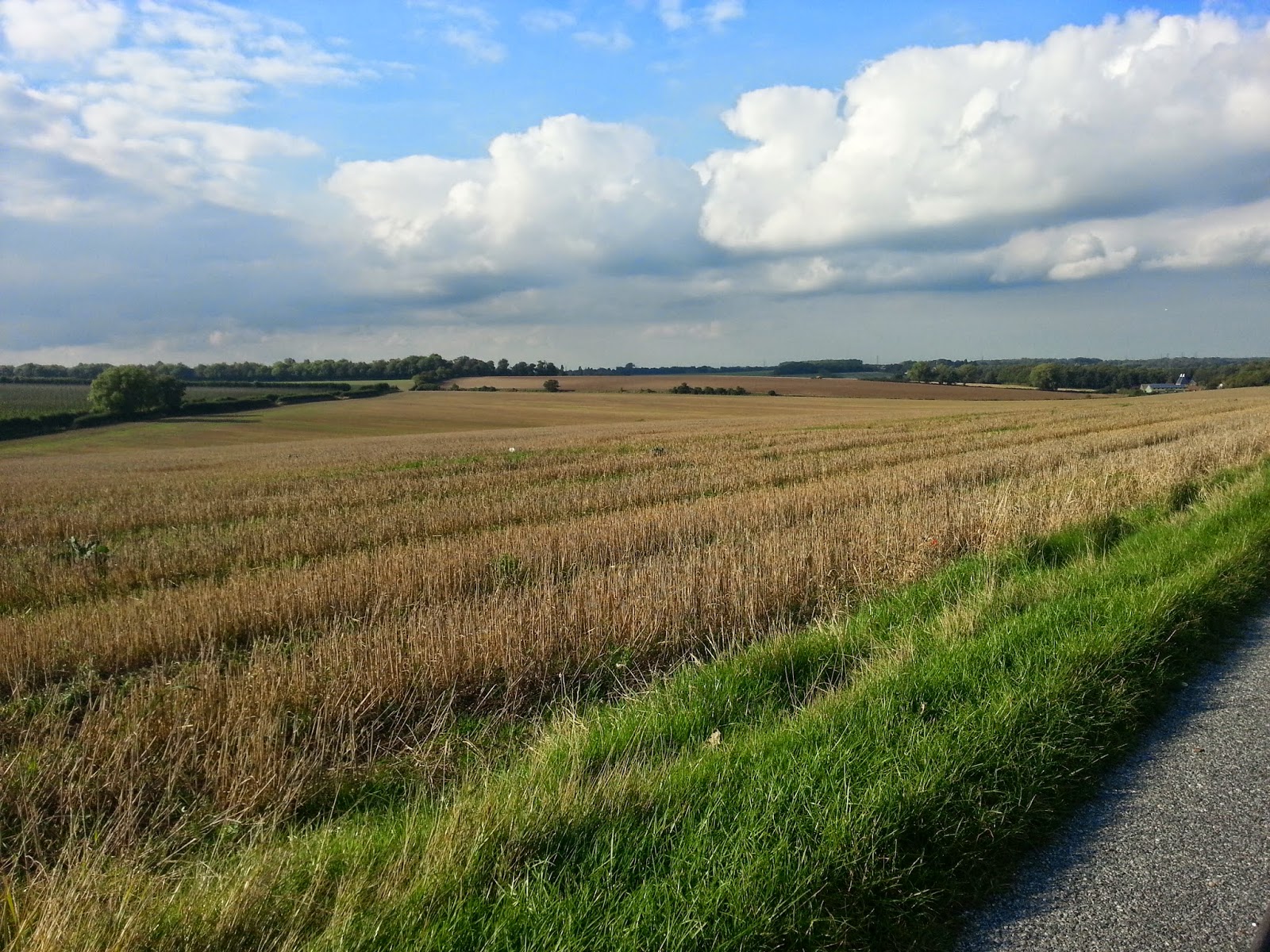by Jacqui Reiter
 |
| Depiction of "The Three Princes of Serendip" |
I was 17 when I first stumbled on the word “serendipity”. I was undergoing interview at the university I later attended. The Director of Studies asked how much serendipity had gone into the finding of the sources for my high school Extended Essay. I didn't know what he meant, but explained my methodology, which turned into the right answer. As soon as I got within reach of a dictionary I looked the word up.
“Serendipity” is a wonderful word for a phenomenon I have encountered again and again over the course of my historical studies and research. It was coined in 1754 by Horace Walpole, describing a story he had read entitled “The Three Princes of Serendip”, in which the characters kept making accidental discoveries.[1] It's a magnificent word for those kinds of historical discoveries of things you are not necessarily looking for, but which enrich your subject knowledge, open up an aspect of your research you never knew existed, or even change the direction of your investigations completely.
Research has to be based on a system: you can't just start reading and trust to fate to point you in the right (write?) direction. But, while following up research leads, I have encountered serendipity at every turn. It has happened so much that I have even started talking about a Research Fairy who follows me into the archives, tugging at my sweater and pushing certain documents my way, or leads me to just the right historical location, or turns my head in the right direction in the art gallery. It's happened so many times now that it can't possibly be a coincidence … can it?
To give you only three examples from my recent research experience:
1). The time my good friend and research sister, Stephenie Woolterton, and I went to Berry Brothers & Rudd looking for the records of the weight of my main character, John Pitt, 2nd Earl of Chatham. Berry Brothers is a wine merchant but have a famous set of massive coffee scales on which they occasionally weighed wealthier customers in the 18th and 19th centuries.
.jpg) |
| (Wikimedia Commons) |
The employees were slightly thrown to discover that we did not, in fact, want to see the world-famous entries in their ledgers for Lord Byron. They explained to us that Chatham's entry was probably off-site with the majority of their records, but after being pressed they gave us permission to look in the same ledger that contained Byron's entry.
The ledger fell open at Chatham's page.
 |
| Photo by Stephenie Woolterton |
2.) I spent a while researching the 1799 Helder campaign for a sequence in my novel. While tracking the movements of my main character, I found that he stayed in a house called “Bifrons”, near Canterbury, while waiting to embark for the expedition. The house, alas, no longer stands, but I found enough information about it to be able to set a scene there reasonably confidently.
A few days later I decided to take my toddlers for a trip to Howlett's Zoo in Kent. While driving down I noticed a place name that was familiar to me from the correspondence I had been reading: Harbledown. A few minutes later I turned past a road named Bifrons Hill. Yes: I had casually stumbled on the former location of Bifrons House.
 |
| View across Barham Downs near the location of Bifrons (my photo) |
3). I could give numerous examples of times in the archives when I have ordered one thing and discovered something much more interesting lurking in the background. On one occasion I called out a volume and looked at a letter I knew existed and which I had meant to consult. Casually, as I often do, I flipped through the volume and found another letter, an undated and unaddressed draft, filed a few items away, but which I immediately spotted was connected with the letter I had originally been reading. The more I read, the more I realised that the two letters added together pointed to a new and fairly major historical discovery.
Over the next few weeks I followed the lead. Everything suddenly fell into place: a whole mass of cryptic references in correspondence that had previously made no sense to me suddenly took on a whole new meaning. After a while it all seemed so obvious to me I wondered how nobody else had spotted it before. And all thanks to that one undated draft, which had been filed as though it were a continuation of another, completely unconnected letter.
So there you have it. Surely these things are not coincidental? And I have so many other examples too of how research has taken me down avenues I never even knew existed. Serendipity for sure (although I'm aware a lot of these examples are not “proper” serendipity, in that a lot of the time I was looking for something specific and merely found it in a serendipitous way).
It's probably coincidence: but it's happened so often that I almost believe in that Research Fairy I mentioned. Historical research does have a spark of magic to it, after all.
___________________
References
[1] Horace Walpole to Sir Horace Mann, 28 Jan 1754, The Letters of Horace Walpole, earl of Orford III (London, 1840), 35
___________________
Jacqui Reiter has a Phd in 18th century political history. She believes she is the world expert on the life of the 2nd Earl of Chatham, and has written a novel about his relationship with his brother Pitt the Younger. She is currently writing Chatham's biography, due to be published in September 2016 by Pen & Sword Books. When she finds time she blogs about her historical discoveries at http://alwayswantedtobeareiter.wordpress.com/.

Awesome post! I believe in fairies, research or not.
ReplyDeleteJacqui, I've had similar experiences -- some so amazing and inspiring as to make my spine tingle. I'm less inclined to believe in faires and more inclined to believe that genuine inspiration is divine and so the process of turning inspiration into a solid work of historical fiction often receives a little divine push in the form of serendipity.
ReplyDeleteThat's certainly an explanation I can go with. :-)
DeleteSince when are fairies not divine? ;-) I will share the story of my serendipitous family connection in the near-term.
ReplyDeleteWeird as we say in Scots meaning having the power to control destiny. Hence the Weird sisters in Macbeth. It's amazing how often this happens - pages falling open, a book on a shelf jumps out or you find some piece of the jigsaw that connects everything else. Also happens with other things in life - ie you're thinking of someone & the phone rings. Fascinating Jacqui! Thanks for sharing.
ReplyDelete